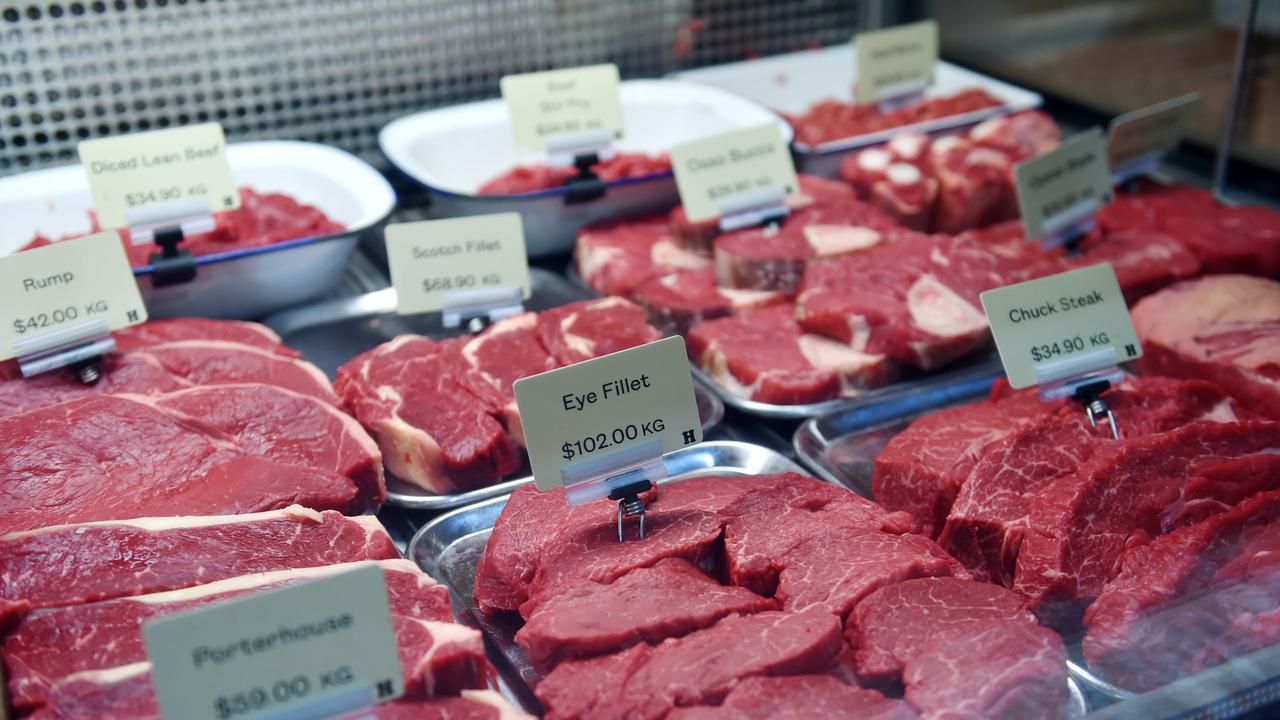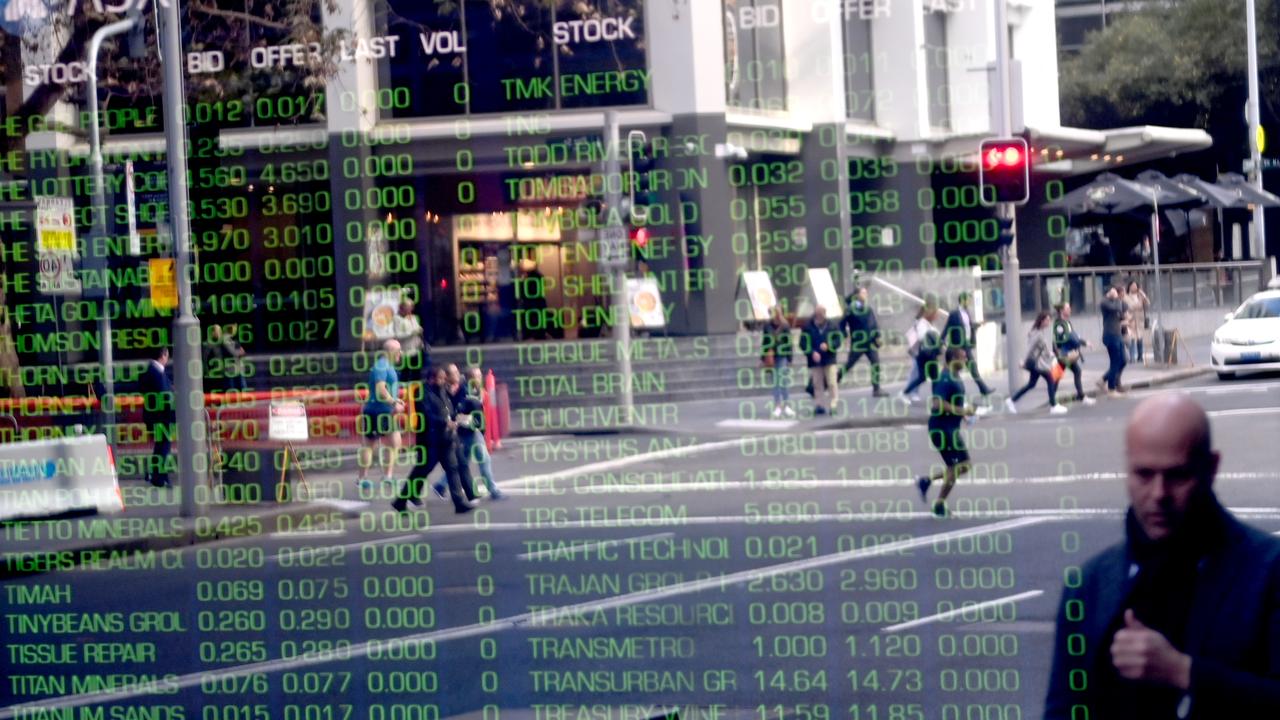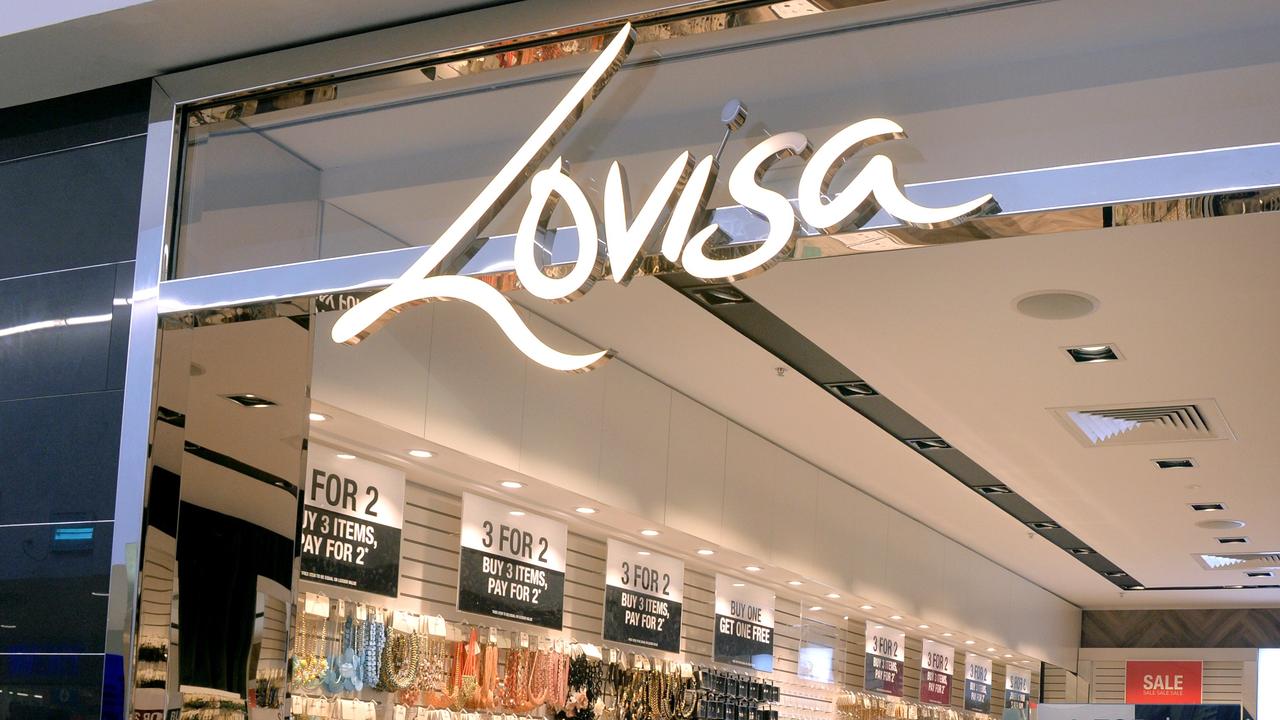Aussie billionaire’s mission to rid world of slavery
A SHOCKING encounter with a girl sold into the sex trade put one of Australia’s richest men on a mission. The world is finally listening.
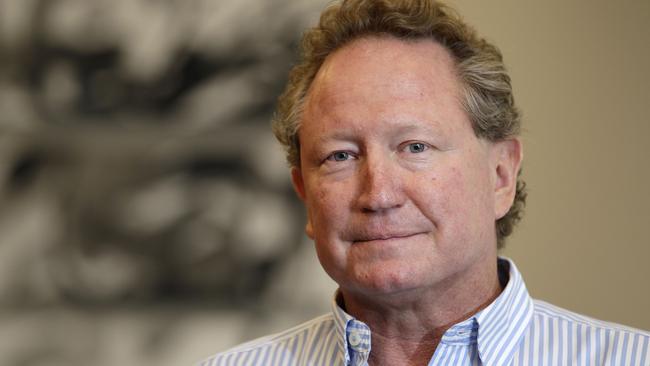
IT’S an experience so heart-wrenching that Andrew “Twiggy” Forrest still finds it difficult to talk about.
Retelling the story years later in the luxurious surroundings of a Midtown New York hotel, the West Australian mining magnate has to dart his eyes out of the window to avoid choking up.
The memory is of a shocking encounter with a 12-year-old Nepalese girl who was so traumatised by what he calls “one of the best-funded, biggest criminal industries in the world” that she was broken nearly beyond repair.
The Aussie billionaire and noted philanthropist was visiting a large orphanage in Kathmandu at the insistence of his daughter Grace.
“In this large orphanage, you were met with hundreds of children and, generally, they’d forgiven the human race, they were bright and happy and they were learning school and mathematics and English and Nepalese history — the normal stuff,” Mr Forrest tells news.com.au.
“But, towards the end of the tour, the matron took me to the dormitory where the [new] kids were — I still have difficulty talking about this actually — and there’s one little girl who was whimpering. She wasn’t saying anything but you could hear her whimpering and she’s tossing from side to side in the bed, tossing.”
The girl, the matron explained, had just been returned to her home country after spending the past four years — ages eight to 12 — as a child sex slave. The girl did not know where she was trafficked to; she only knew that it was a “land where men wore white dresses”. When she reached adolescence, she was no longer considered a child, so she was sent on a one-way ticket to India, before being transported back to Nepal.
“I walked down between the beds and was wondering if I could speak to this little girl. She heard my footsteps on the wooden floor and she stopped rocking and looked up at me. I was about three or four metres away and she let out this harrowing scream which I will never forget.
It was a scream where everything is lost, where she is about to go through the most horrific experience. And it was because there was a male approaching her bed.
“I, of course, stopped in my tracks and walked back slowly. And then she stopped screaming after a while. What that child must have gone through was just unimaginable.”
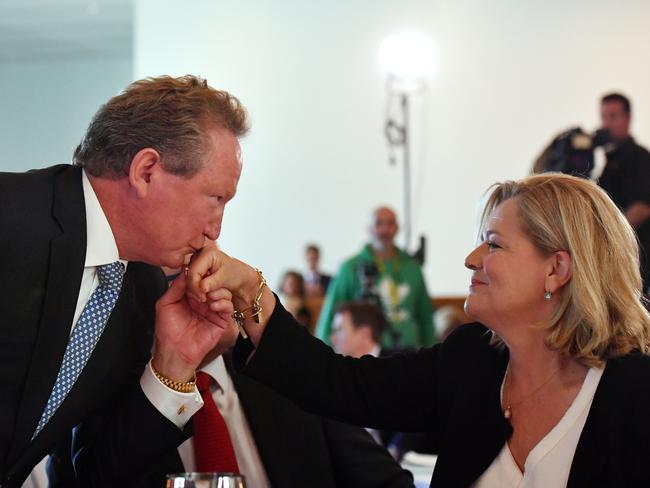
THE SCOURGE THAT ‘SHAMES US ALL’
Heartbreaking stories like this have stayed with Mr Forrest and fuel his work with the Walk Free Foundation, an organisation he founded with his family to end modern slavery in all its insidious forms.
In a landmark new report released this week, the foundation, in partnership with the International Labour Office, has released the first set of figures that show the extent of slavery, child labour and forced marriage in today’s world. The figures are staggering, but even Mr Forrest admits they are “conservative” estimates.
The research found that more than 40 million people were victims of modern slavery and about 152 million children were subject to child labour — including in the commercial sex industry — worldwide. Fifteen million of these people were in marriages they had not consented to. Mr Forrest said the fact this was occurring under our noses “shames us all”.
“If we consider the results the last five years, for which we have collected data, 89 million people experienced some form of modern slavery for periods of time ranging from a few days to the whole five years. This speaks to the deep-seated discrimination and inequalities in our world today, coupled with a shocking tolerance of exploitation. This has to stop. We all have a role to play in changing this reality — business, government, civil society, every one of us,” he said.
Thankfully, the issue is finally gaining the attention it deserves. Mr Forrest presented the findings to 20 world leaders at the United Nations General Assembly on Tuesday, with Donald Trump’s daughter Ivanka, British Prime Minister Theresa May and Australian Foreign Minister Julie Bishop all committing to help end the scourge.
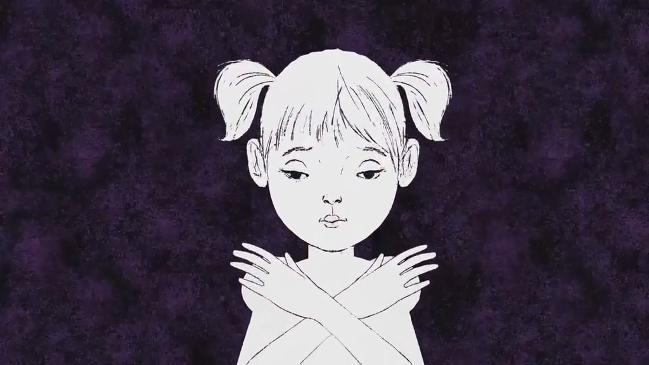
“It’s a really major issue which has been ignored by the world and it’s now getting major attraction,” Mr Forrest said.
The Aussie’s passion for the issue began when his daughter Grace, then 16, visited a different Nepalese orphanage that, it turned out, was actually part of a child sex trafficking ring.
“Nepalese children, sadly, have lighter skin so they bring a higher price in the Middle East and the European paedophile industry and when these kids returned — if they ever returned — they are so horrifically scarred, both physically and mentally … to say that their stories were horrific is really to under-bake the reality. Most kids never came back, so it’s just a callous, incredibly cruel profit-driven industry, exploiting hundreds of thousands of children.
“When I discovered this, I made a commitment of Grace and my family that we’d start to pursue it and it took all of the family because we’re taking on what is one of the best-funded, biggest criminal industries in the world.”
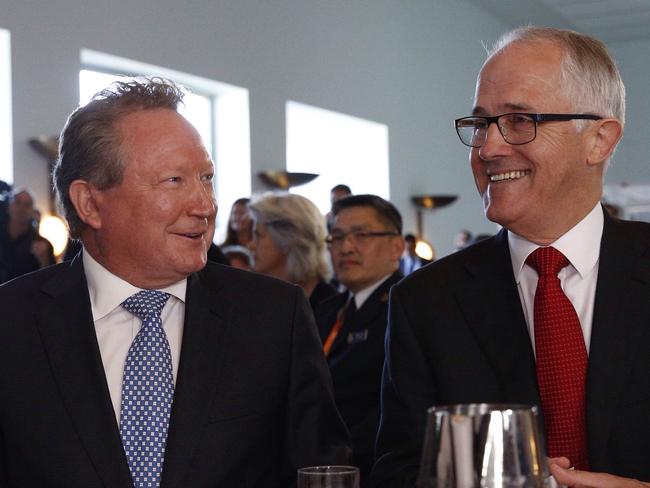
BATTLE TO REMOVE SLAVERY FROM HIS OWN SUPPLY CHAIN
Mr Forrest started his fight against slavery with his own business, iron ore mining giant Fortescue Metals Group. He sent affidavits to each of his 3000 suppliers asking them to demonstrate that their company used no forced labour or engaged in any modern slavery practices.
“I thought it was a ridiculous notion. We operated with very reputable suppliers and very competitive companies; I thought we’d have no risk,” Mr Forrest tells news.com.au.
Of all his suppliers, about a dozen had difficulty signing the declaration.
“That didn’t faze us. We said, ‘Look, if you have difficulty, work with us, but if you lie or if don’t send the affidavit back then you’re unlikely to be a client for too long of Fortescue’.
“One organisation in particular had really horrific slavery in their supply chains. They were making goods for myself and hundreds of companies which dot the Fortune 500 index, so all those companies had slavery in their supply chains as well at the time.”
Mr Forrest tracked down the chief executive of the British company in question to inform him that businesses that reported to him were confiscating the passports of workers, a criminal act and a red flag for modern slavery. The chief executive denied it and was “initially incredulous”, but the threat of bad media publicity was enough to provoke swift action on the businessman’s behalf.
“I said I’ll give you 15 minutes to work it out and call me back. He called me back in eight minutes and said, ‘No, you’re right’. He agreed to act and he acted vigorously.”
Other major business such as Coles’ parent company Wesfarmers and Walmart, the biggest retailer in the world, have followed suit, working hard to root out all evidence of modern slavery from their supply chains.
“As soon as a company admits that they’re likely or have got slavery in their supply chains you can almost hear slaves being freed. As soon as a company says, ‘No, no, I haven’t got slaves in my supply chains’, you know that their inaction is going to end up enslaving people.
“If you’re not looking for malpractice in your supply chains you should not be in business.”
Mr Forrest is pushing all nations to follow the example of the UK’s Modern Slavery Act, which ensures business are held to account for modern slavery in their supply chains. Australia has committed to passing a similar law and the US has indicated a willingness to do the same.
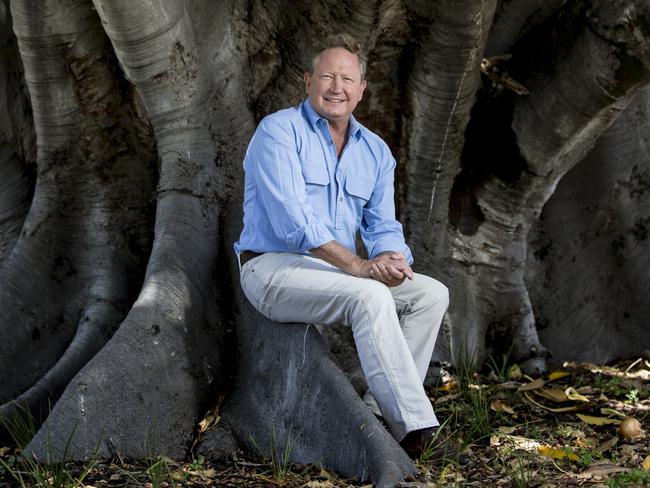
ONE QUESTION EVERY SHOPPER SHOULD ASK
But the solution is not just on governments and Fortune 500 companies. Everyday consumers have a part to play in stopping the problem.
“In Australia, when people buy their seafood or when they buy their shirts or jeans or any goods, they should simply ask the question, even of the teller, ‘How do I know these goods have not been made by forced labour or slavery?’” Mr Forrest says. “That teller’s going to report to the floor manager who’s going to report to the wholesale manager who’s going to report to the procurement officers. It will wind it’s way up to, say, Michael Chaney, head of Wesfarmers, who, incidentally, is a very strong advocate against slavery. So, when he knows that he’s got a slave-free supply chain, he can make that very clear to his huge customer base of Coles. Now, Woolworths then will be at a competitive disadvantage so they need to have the same transparency, so you have this virtuous circle driven by the average joe consumer, asking that simple question. It’s immensely powerful.”
The 2016 Global Slavery Index found that there were at least 4500 people enslaved in Australia, largely in the sex, food processing and cleaning industries.
“I’d like the everyday Australian to be aware that slavery exists. It exists in the agricultural processing sector, it exists in the fishing sector, it exists in the illicit prostitution sector, and I’m not saying prostitution is bad or good, but I am saying that a number of people who work in it are forced and they’re tricked into it.
“Australia needs to be very aware that that’s happening. When Asian girls are for hire those customers who don’t ask the question or don’t bother to find out are absolutely collaborating with the slave trade.
“More broadly, food processing manufacturing, domestic servitude, right across Australia there are people who come in and they might be contract cleaners, they might be domestic staff. If you don’t ask the question from your labour hire company and you’re not prepared to thoroughly engage with the person working for you — find out if they’re getting properly paid, if they have access to their own passports — if you’re not prepared to ask those questions, then you could well be assisting the slave trade.”

